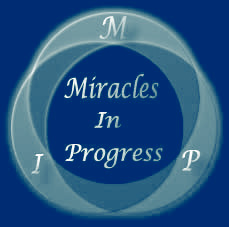
Practical experience shows that nothing will so much insure immunity from drinking as intensive work with other alcoholics. It works when other activities fail. p89 Big Book. Chapter 7 Working with others.
They knew they must help other alcoholics if they would remain sober. p159 Big Book.
Particularly it was it imperative to work with others as he had worked with me. Faith without works was dead, he said. p14 Big Book.
Our very lives, as ex-problem drinkers, depend upon our constant thought of others and how we may help meet their needs. p20 Big Book.
If an alcoholic failed to perfect and enlarge his spiritual life through work and self-sacrifice for others, he could NOT survive the CERTAIN trials and low spots ahead. p15 Big Book.
Helping others is the foundation stone of your recovery." p97 Big Book
A kindly act once in a while isn’t enough. You have to act the Good Samaritan every day, if need be." p97 Big Book.
To be vital, faith must be accompanied by self sacrifice and unselfish, constructive action. p93 Big Book
Happy in their release, and constantly thinking how they might present their discovery to some newcomer" p158 Big Book
But what does AA mean by 'intensive work' with other alcoholics? Presumably the work involved in carrying the message of how precisely to recover (pxXIII) to the alcoholic who still suffers.
Also, the conditions under which this 'intensive work' take place most effectively are defined very explicitly on page 18;
these are the conditions we have found most effective.
he obviously knows what he is talking about;
his whole deportment shouts at the new prospect that he is a man with a real answer;
no attitude of Holier Than Thou;
nothing whatever except the sincere desire to be helpful;
no fees to pay;
no axes to grind;
no people to please and;
no lectures to be endured.
So basically, the experience of the first hundred members would seem to be that nothing insures immunity from drinking as much as 'intensive work' with other alcoholics (p89 Big Book) and this 'intensive work' is performed most effectively under the 8 conditions listed on page 18. Easy!
It is very easy to complicate the process of recovery, and make very ? complicated analyses of why certain people relapse and why certain people don't relapse.
Rather than get sidetracked by the debating society line of thinking, I prefer to stick to what I have observed first hand keeps people sober in meetings. All I know, is that I have yet to meet an alcoholic who consistently (!) makes helping newcomers their priority who has relapsed. Thats what attracted me to it in the first place. Yes I know some members 'two-step' (meaning they practice only step one and 12, and skip the rest inbetween) but I mean in conjunction with completing the first 9 steps. I just haven't met them. All the people I meet who consistently focus on, and assist newcomers insofar as helping them stay sober using the programme, ..all stay sober. (as opposed to consistently using AA as a social club, or a place to find a husband, friends or a job or ? whatever..)
Its probably the most consistent thing I've done in AA. The other stuff was presented to me by old timers as a sort of 'side salad'. Optional in the sense that I didn't need to do it straight away or every day, whereas helping others was presented to me as mandatory daily fare right from the beginning. I started when I was very very new. Less than ? 3 months. Its helped me !!!!! tremendously so I always mention it to people who are concerned that they might drink, or are having thoughts about drinking. or for whom drinking still seems appealing. I almost feel guilty saying it, but I literally never think about drinking. But then I help newcomers a LOT. Always have. and I am sure that is why. I really enjoy it now, but I wouldn't say it is ever easy. Its a very demanding workout, but feels great once you get into the swing of it.
I'm not saying it's easy, all I'm saying it's extraordinarily rewarding when you throw yourself into it unconditionally. Plus you don't have to worry about drinking. Well that's what I find.
So, next time you meet somebody who has relapsed, (at ? some point) ask them how many AA newcomers they spoke to, or tried to help in the 7 days preceding their relapse. Two weeks beforehand?
Or how often they helped newcomers before they relapsed. Once a week? Once a month? Every day?
Or ask them which step they were working at the time of their relapse.
If you have no attitude of holier than thou, and have nothing whatever except a sincere desire to be helpful, (page 18) then you can ask these questions without fear of harming the other person. Well thats what I find.
Anyway just thought I would mention that, as I have always been very interested in the conditions preceding a relapse. And the conditions that make people feel very free, and unburdened. Not because I have an interest in the matter per se, but because I have a desire to be helpful, and being informed as to what leads to relapse allows me to be more effective in helping others.
Informed decisions are better than uninformed decisions in my experience. So I try to understand the conditions as best I can, knowing that I may never really understand it, but there's no harm in trying to make sense of it.
Thanks for taking the time to read this :) and I hope you have a !!! fabulous weekend :)



